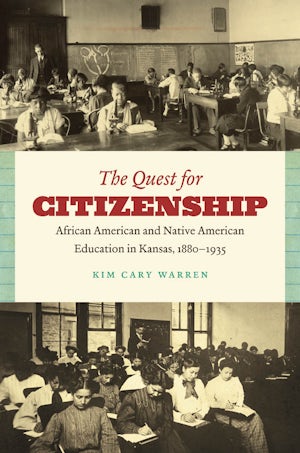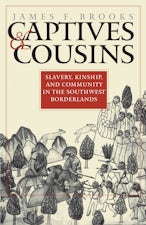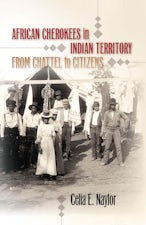The Quest for Citizenship
African American and Native American Education in Kansas, 1880-1935
By Kim Cary Warren
248 pp., 6.125 x 9.25, 18 illus., notes, bibl., index
-
Paperback ISBN: 978-0-8078-7137-9
Published: September 2010 -
E-book PDF ISBN: 979-8-8908-8381-0
Published: September 2010 -
E-book EPUB ISBN: 978-0-8078-9944-1
Published: September 2010
Buy this Book
- Paperback $37.50
- E-Book $27.99
For Professors:
Free E-Exam Copies
After the Civil War, white reformers opened segregated schools, ultimately reinforcing the very racial hierarchies that they claimed to challenge. To resist the effects of these reformers' actions, African Americans developed strategies that emphasized inclusion and integration, while autonomy and bicultural identities provided the focal point for Native Americans' understanding of what it meant to be an American. Warren argues that these approaches to defining American citizenship served as ideological precursors to the Indian rights and civil rights movements.
This comparative history of two nonwhite races provides a revealing analysis of the intersection of education, social control, and resistance, and the formation and meaning of identity for minority groups in America.
About the Author
Kim Cary Warren is assistant professor of history at the University of Kansas.
For more information about Kim Cary Warren, visit
the
Author
Page.
Reviews
"A thoughtful examination of the educational, philosophical, and developmental history of nonwhite peoples in the United States, highly recommended as a worthy addition to college and public library American History shelves."--Midwest Review of Books
"Students of the history of education will benefit from this helpful investigation that allows comparison to contemporary schools like the Hampton Institute and Booker T. Washington's Tuskegee Institute. Recommended."--Choice
"A valuable contribution to Kansas history and essential reading for those interested in education and the construction of identities among two of America's most prominent minority groups." --The Journal of American History
“Warren’s well-researched and valuable study is intriguing.”--American Historical Review
“A good, well-documented contribution to our understanding of the driving forces behind education for African Americans and Native Americans and the end results of such schooling.”--Kansas History
“A bold and important work that situates the Kansas story in the larger context of race relations in America . . . . This very fine book deserves a careful reading by educational historians. Students, moreover, will find it a fascinating window on the complex connections between race, education, and the meaning of citizenship in America.”--History of Education Quarterly




